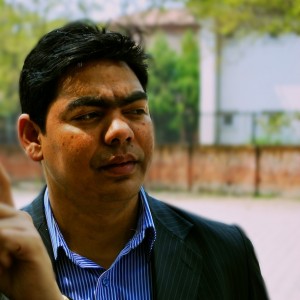Seven years ago, 25 Dalit girls were given a chance to go to college. Today, they are role models for other Dalit daughters, and their parents.
In Nepalese society, where caste-based
discrimination is all-too common, being a Dalit ("untouchable") means facing a life without access to opportunity – educational, economic or political.
Being female merely adds to the challenge. According to the 2001 census, only 43% of the Dalit population is literate, and the rate is much lower among Dalit women.
"Dalit women face double discrimination – added to the discrimination based on caste, they also face gender-based discrimination," said Birendra Bishwokarma, executive director of the Professional Development and Research Centre (PDRC), a non-governmental organisation that works on Dalit issues.
"Even if they are talented, Dalit girls rarely get chances to get higher education and reach leadership positions," he told Khabar South Asia.
Back in 2006, PDRC took steps to change that, through "Empowering Dalit Daughters," a scholarship programme for Dalit girls.
With financial support from the Nepal Youth Foundation, it embarked on a nationwide talent hunt to select 25 talented and motivated Dalit girls. They received scholarships to prestigious colleges in Kathmandu, as well as food and accommodation at a hostel in the capital for six years.
Before being placed in top colleges, the students received training in
leadership, counseling and communications skills.
"The objective of the programme was to create role models out of these girls, which we believe will help make people aware about the importance of educating their daughters," Bishwokarma said. "It was also an effort to bring the leadership developed at local level into national level."
Success stories
Better education has translated into better opportunities for these young women. Hema Shreepaile, 23, and Mala Nepali, 24, are two of them. Shreepaile works at the prestigious Hotel Annapurna in Kathmandu, while Nepali is employed with an education consultancy in the city.
Shreepaile, who hails from Kailali district in western Nepal, scored Gold Medal from Tribhuvan University in 2012 for earning highest marks in the Bachelor's in Hotel Management programme.
"I feel very happy to have received the scholarship," Shreepaile told Khabar. "It helped me in many ways. It supported me financially to achieve my dreams. It also provided me a learning environment, helped me become more confident about myself and develop leadership qualities.
"Living with 24 students of different cultures from different parts of the country helped me learn a lot about their cultures, as well," she added.
Mala Nepali says the programme has not only helped her, but inspired others.
"More and more people in my community have begun sending their daughters to school nowadays," she said. "Sometimes, I have found mothers telling their daughters that they should study and become like me. It pleases me to know that I am inspiring some people."
Two of the 25 participants have finished their graduate studies; 13 have completed their undergraduate programmes; five more are waiting for their final results.
According to Bishwokarma, the assistance will continue. "Although as of now, we do not have funds to repeat the programme, PDRC intends to keep supporting more Dalit girls by providing them with training and connecting them with scholarship opportunities nationally and internationally," he told Khabar.
Bidhyanath Koirala, an educator, believes such efforts to educate girls is beneficial to the community as a whole. "Since girls are more connected to their family and their community, educating girls can have huge impact," he told Khabar.
By Surath Giri for Khabar South Asia in Kathmandu published on 3 June, 2013












![Participants in the Empowering Dalit Daughters programme pose for a portrait. From left, Rebica Nepali, Hira Nepali, Sangita B.K., Pramila Bishunkhe, Anju Kadel and Barshaa Prakash, The programme provided scholarships, food and accommodation to 25 Dalit girls from across Nepal. [Photos courtesy of Professional Development and Research Centre (PDRC)]](http://khabarsouthasia.com/shared/images/2013/06/03/130603-SURATH_IN_DALITSCHOLARS1-310_207.jpg)



